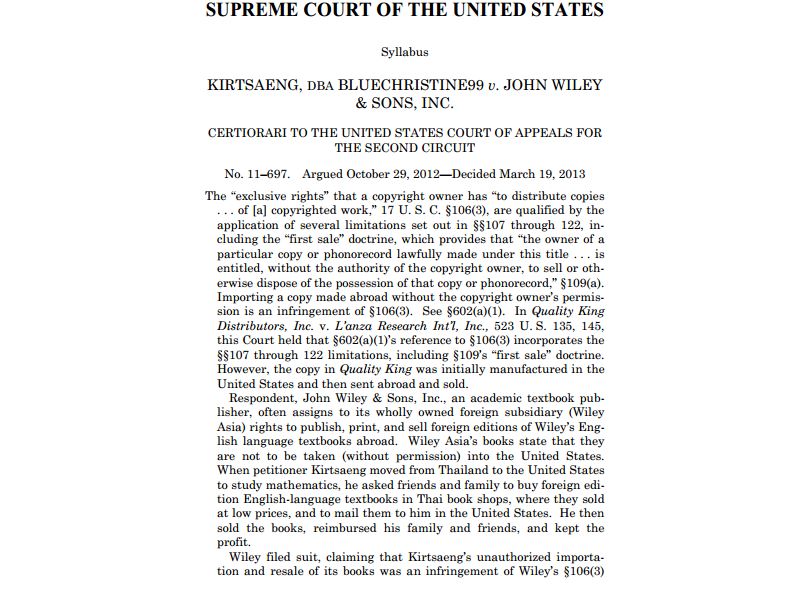Booksellers Win Right to Resell Secondhand Books in U.S. Supreme Court Decision
- by Michael Stillman

The Court's decision.
The Court was undoubtedly distressed by the possibilities here, but returned to their dispassionate legal reasoning. The alternative to the geographical reading of “under” is to substitute “in accordance with” as a synonym for “under.” By this interpretation, books produced in accordance with the terms of American copyright law, even if produced outside of American jurisdiction, were still published “under” the law. As such, they are still subject to the “first sale” doctrine. Since Mr. Kirtsaeng's friends purchased the books in accordance with the U.S. copyright law (that is, they were legally purchased from the copyright holder), the “first sale” doctrine still applies. He can legally resell these books in America, and Wiley's protestations to the contrary printed inside the book carry no weight. It is no different than if the books were printed in America or if he had purchased the books in America. Once the first sale (to him) was made, he was free to do with his books as he pleased. It is this second view that prevailed in the Supreme Court. Game, set and match to Mr. Kirtsaeng and the booksellers.
It should be noted that while this decision preserves the first sale rights of all of those foreign published books currently in America, and those being brought to America now, Congress retains the right to change the rules in the future. Two of the judges who participated in the decision, one liberal and one conservative, added a concurring opinion in which they stated that they believed Congress had intended to allow for “segmented” markets (differing price structures in different countries). However, they felt obligated to rule as they did because they thought it worse to mess around with the “first sale” doctrine, thereby leaving booksellers, libraries, and the like trying to figure out what they could legally sell or lend. They opened the door to Congress, if it wants to allow for segmented markets, to restrict the importation of books published overseas. Put the onus on the importer, not the reseller. I, for one, would question such a limitation on First Amendment (free speech) grounds, but add those two judges to the three who dissented in this opinion, and you have the five needed to carry the day. I hope Congress lets this mangy sleeping dog lie.